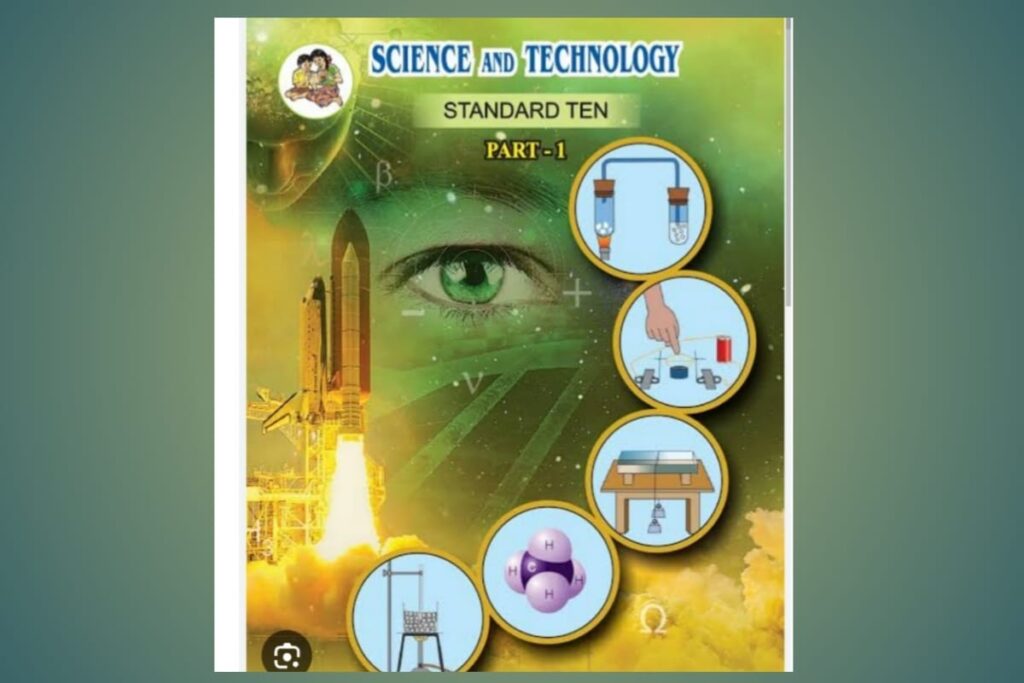
The Fascinating World of Science : Exploring Class 10th Science Part 1
Introduction :
Welcome to the exciting world of science! Class 10 Science Part 1 is where students embark on a journey to explore the fundamental principles that govern our universe. In this blog, we will delve into the first few chapters of this syllabus, unraveling the mysteries of nature and uncovering the beauty of scientific inquiry.
Fascinating World of Science : Exploring Class 10th Science Part 1

Chapter 1 : Chemical Reactions and Equations
Chemical reactions are the heart of chemistry, driving the transformations of matter all around us. In this chapter, students learn about the various types of chemical reactions, such as combination, decomposition, displacement, and double displacement reactions. They also understand the concept of a chemical equation and how to balance it to obey the law of conservation of mass.
Chapter 2 : Acids, Bases, and Salts
Acids, bases, and salts play crucial roles in our daily lives, from the food we eat to the products we use. In this chapter, students explore the properties of acids and bases, including their taste, reaction with indicators, and conductance of electricity. They also learn about the pH scale and the significance of neutralization reactions in forming salts.
The Fascinating World of Science : Exploring Class 10th Science Part 1
Chapter 3 : Metals and Non-Metals
Metals and non-metals constitute the building blocks of materials around us, each with unique properties and uses. In this chapter, students distinguish between metals and non-metals based on characteristics such as lustre, malleability, ductility, and conductivity. They also explore the reactivity series of metals and the extraction of metals from their ores.
Chapter 4 : Carbon and its Compounds
Carbon is the backbone of organic chemistry, forming the basis of all living organisms and a myriad of synthetic materials. In this chapter, students delve into the bonding patterns of carbon, including the concepts of covalent bonding and the tetrahedral structure. They also explore the vast diversity of carbon compounds, from hydrocarbons to functional groups like alcohols, aldehydes, and carboxylic acids.
Chapter 5 : Periodic Classification of Elements
The periodic table is a masterpiece of scientific organization, arranging the elements based on their atomic structure and properties. In this chapter, students learn about the historical development of the periodic table and the modern periodic law. They explore the significance of periods and groups, as well as the properties of elements within each group.
Conclusion :
Class 10 Science Part 1 lays the groundwork for a deeper understanding of the natural world, providing students with essential knowledge and skills to navigate the complexities of science. By studying the principles of chemical reactions, acids and bases, metals and non-metals, carbon compounds, and the periodic table, students develop a solid foundation for further exploration in their scientific journey. As they continue their studies, they will uncover even more wonders of the universe, expanding their horizons and contributing to the ever-evolving field of science.
Read also this :
Certainly! Class 10 Science covers a wide array of topics designed to provide students with a fundamental understanding of various scientific principles and phenomena. Here’s a summary of some basic information about Class 10 Science:
- Syllabus Overview : The Class 10 Science syllabus typically consists of two parts: Part 1 and Part 2. Each part comprises multiple chapters, covering different branches of science such as physics, chemistry, biology, and environmental science.
- Interdisciplinary Approach : Class 10 Science adopts an interdisciplinary approach, integrating concepts from physics, chemistry, and biology to provide a holistic understanding of natural phenomena. This approach helps students recognize the interconnectedness of different scientific disciplines.
- Experiential Learning : Science education in Class 10 emphasizes hands-on experimentation and observation to foster inquiry-based learning. Students are encouraged to conduct experiments, analyze data, and draw conclusions, thereby developing essential scientific skills such as critical thinking and problem-solving.
- Conceptual Understanding : The emphasis is on developing a conceptual understanding of scientific
